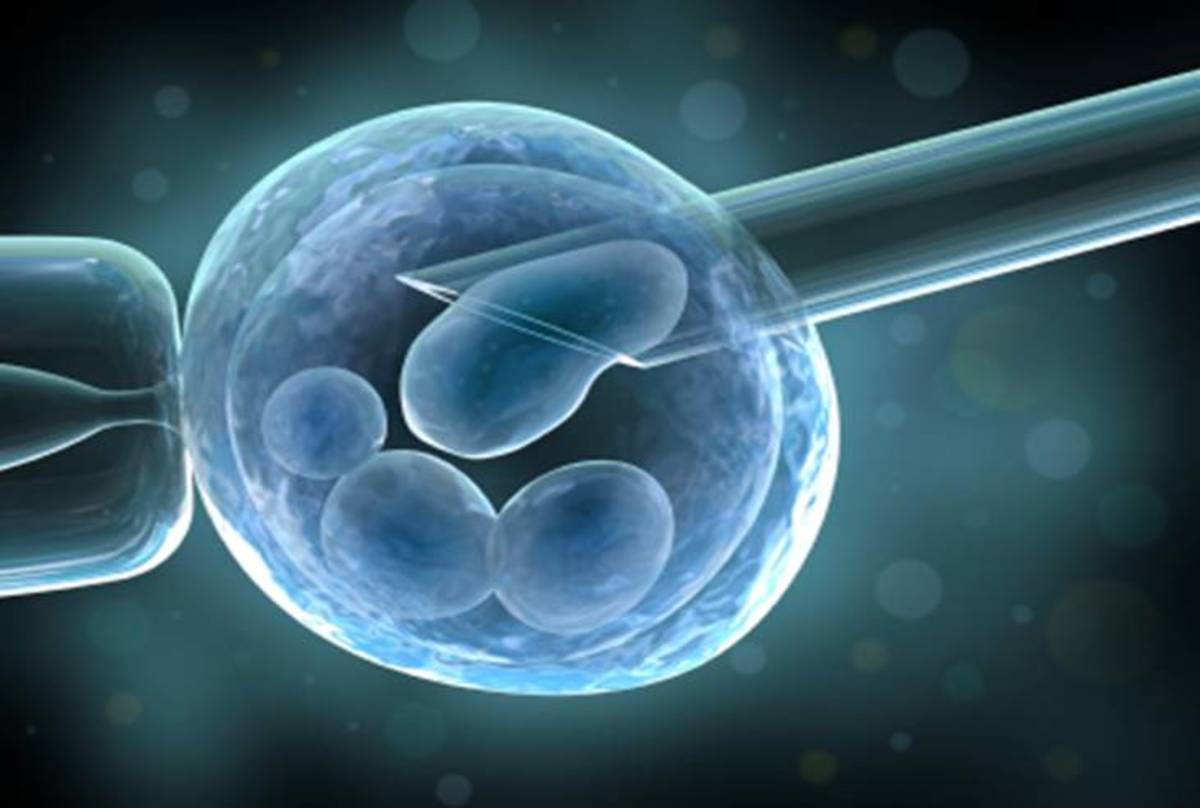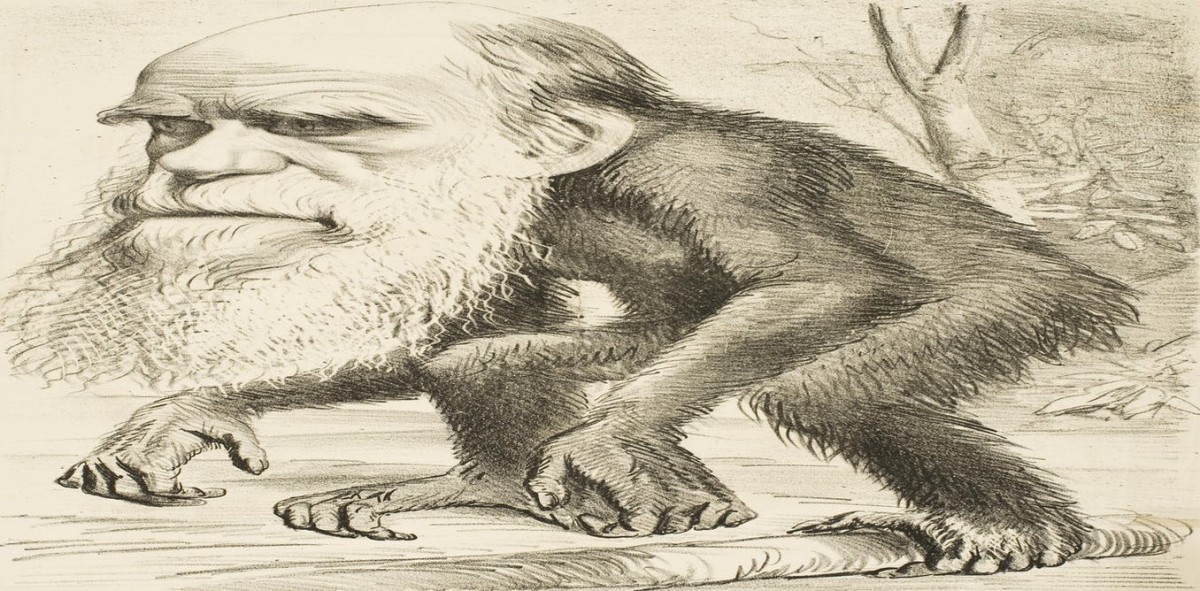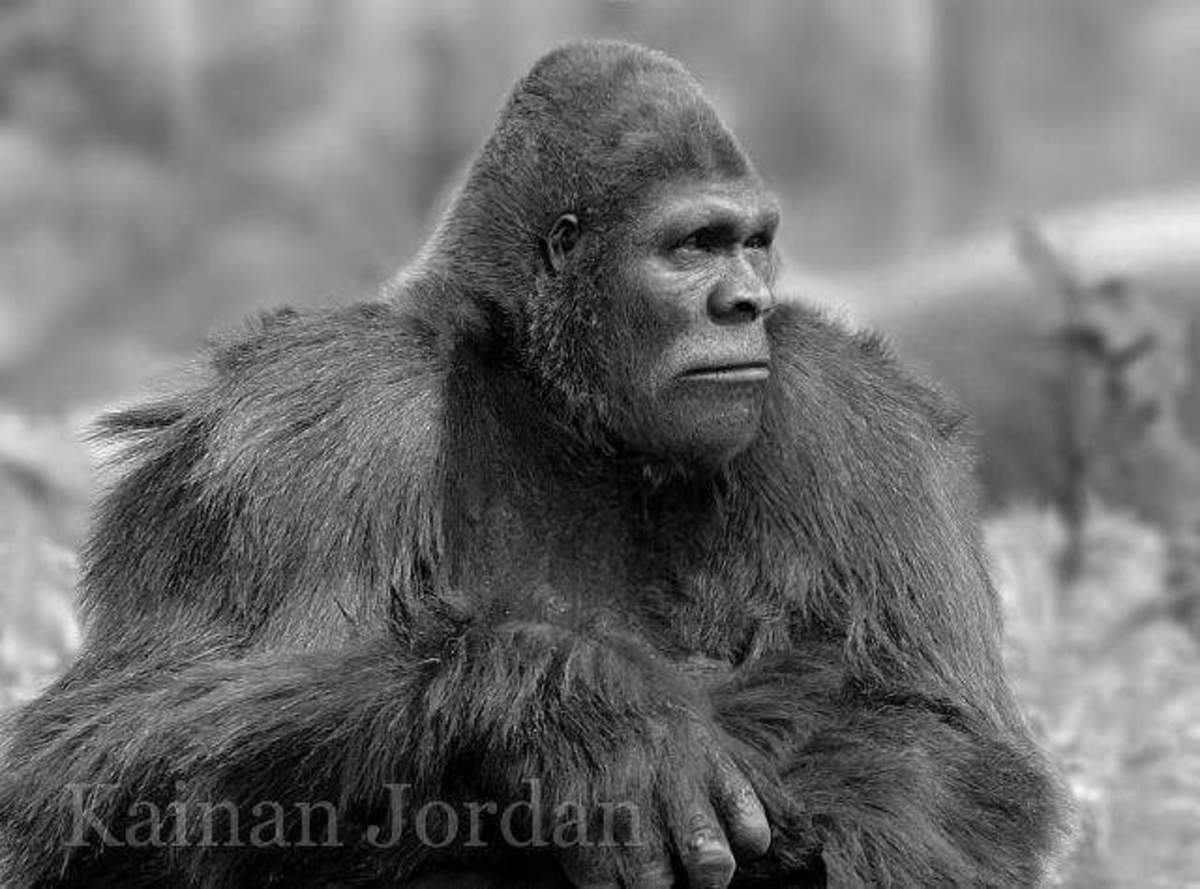They Don't Make Homo Sapiens Like They Used To: (A Commentary on a Scientific Article)
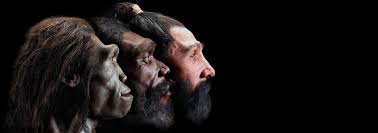
Page One online
Today I want to take a look at an article from the March 2009 edition of Discover magazine: "They Don't Make Homo Sapiens Like They Used To" by Kathleen McAuliffe. The little caption beneath the title reads: "Our species---and individual races---have recently made big evolutionary changes to adjust to new pressures."
Now I have to say that I was left scratching my head, wondering what to make of this article. The piece has a curious tone of crisis about it; it seems to ring an alarm. But it is neither clear about exactly what the nature of the alarm is, nor what we should do about it.
First of all, let me just inform you that you can, of course, read the article online if you like (1).
The first two paragraphs deal with the idea that human evolution is complete. The proper dramatic tension is developed, so as to prepare us for the big twist---No It Is Not! Let's quote from the end of the second paragraph as well as the third.
End of the second paragraph:
"Over the past 10,000 years, their data [researchers] show, human evolution has occurred a hundred times more quickly than in any other period in our species' history."
Third paragraph:
"The new genetic adaptations, some 2,000 in total, are not limited to the well-recognized differences among ethnic groups in superficial traits such as skin and eye color. The mutations relate to the brain, the digestive system, life span, immunity to pathogens, sperm production, and bones---in short, virtually every aspect of our functioning."
Here comes the first bell toll of emergency.
Fourth paragraph
"Many of these DNA variants are unique to their continent of origin, with provocative implications. 'It is likely that human races are evolving away from each other,' says University of Utah anthropologist Henry Harpending, who coauthored a major paper on recent human evolution. 'We are getting less alike, not merging into a single mixed humanity.'"
Oh-Oh Spaghetti-os! Its as if Dr. Harpending was saying that "we,"---if we can even use that term anymore---are developing into separate humanities. This is indeed cause for concern, but not for the reason the good doctor imagines.
Now, the rest of this page (online) is puzzling. The article invokes one Dr. John Hawks of the University of Wisconsin at Madison. He's an anthropologist we find rummaging around with some skeletal samples. Then a very strange thing happens...
Seventh paragraph:
"Gesturing toward these relics , which span the past 35,000 years, Hawks says, 'You don't have to look hard to see that teeth are getting smaller, skull size is shrinking, stature is getting smaller.'"
Okay, so far I don't have a problem with the idea that the human form may have been undergoing modification or adaptation even thirty-five thousand years ago. The next paragraph admits this but with a caveat.
Eighth paragraph
"These overriding trends are similar in many parts of the world, but other changes, especially over the past 10,000 years, are distinct to specific ethnic groups. 'These variations are well known to forensic anthropologists,' Hawks says as he points them out: In Europeans the cheekbones slant backward, the eye sockets are shaped like aviator glasses, and the nose bridge is high. Asians have cheekbones facing more forward, very round orbits, and a very low nose bridge. Australians have thicker skulls and the biggest teeth, on average, of any population today. 'It beats me how leading biologists could look at the fossil record and conclude that human evolution came to a standstill 50,000 years ago,' Hawks says."
Hold the phone!
1. On the one hand, we are told that the human form underwent modification, let's call it, as recently as thirty-five thousand years ago. The human form got smaller over this time.
2. Then we are told that this modification continued on as recently as ten thousand years ago. Okay, so far so good.
3. Then we are told that this ten thousand year period has resulted in ethnic differences among Europeans, Asians, and Australians.
4. What is meant by this: ("Australians have thicker skulls and the biggest teeth, on average, of any population today.")?
A. What is that bit about Australians supposed to signify?
B. Are we supposed to understand that since Australians have thicker skulls and the biggest teeth, "on average," that, perhaps Australians "on average" are closer to the more primitive human form of 35,000 years ago? If the article is really saying that, then what? What does it want us to conclude from that? I'll just leave it as a question.
C. What is meant by "on average"? Are we speaking mathematically, as in the way averages are derived from adding up a bunch of numbers and then dividing the answer by the number of numbers added up? Are we talking about some kind of representative, 'average Australian,' whatever that is?
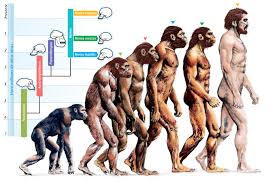
Page Two online
Now beware, dear readers! This article does something very tricky by invoking the socially dreaded word of fitness. Yes, as in survival of the fittest! Be very careful!
Observe.
First paragraph (second page)
"Thanks to stunning advances in sequencing and deciphering DNA in recent years, scientists had begun uncovering, one by one, genes that boost evolutionary fitness. These variants, which emerged after the Stone Age, seemed to help populations better combat infectious organisms, survive frigid temperatures, or otherwise adapt to local conditions. And they were popping up with surprising frequency."
Okay. Well, that doesn't sound so bad, does it, when you put 'evolutionary fitness' that way, in talking about increased survivability of the cold and germs and such?
But wait, there's more.
Third paragraph
One day the aforementioned Dr. John Hawks was talking on the phone to his old post doctoral advisor at the University of Utah.
"Then one day, as Hawks and Cochran mulled over the matter in a phone conversation, inspiration struck. 'At exactly the same moment, both of us realized, gee, there's a lot more people on the planet in recent times,' Hawks recalls. 'In a large population you don't have to wait so long for the rare mutation that boosts brain function or does something else desirable.'"
"[T]he rare mutation that boosts BRAIN FUNCTION or does something else desirable."
Here we go again. Let's proceed.
Page Three online
Twelfth paragraph
"Perhaps the most incendiary aspect of the fast-evolution research is evidence that the brain may be evolving just as quickly as the rest of the body. Some genes that appear to have been recently selected, ..., influence the function and development of the brain. Other fast-changing genes---roughly 100---are associated with neurotransmitters, including serotonin (a mood regulator), glutamate (involved in general arousal), and dopamine (which regulates attention). According to estimates, fully 40 percent of these neurotransmitter genes seem to have been selected in the past 50,000 years, with the majority emerging in just the past 10,000 years."
Well, that still doesn't sound too bad, does it? But wait, there's more!
Thirteenth paragraph
"Addressing the hot potato question---What might these changes signify?---Moyzis and Wang theorize that natural selection probably favored different abilities and dispositions as modern groups adapted to the increasingly complex social order ushered in by the first human settlements."
Pretty standard. There's still no real problem here. But hold on!
Page Four online
So far, so good. Right now, human beings, as a species, are credited with having developed abilities and dispositions that made life possible in an increasingly complex social order.
Third paragraph
"Harpending and Cochran had previously---and controversially---marshaled similar evidence to explain why Ashkenazi Jews (those of Northern European descent) are overrepresented among world chess masters, Nobel laureates, and those who score above 140 on IQ tests. In a 2005 article in the Journal of Biosocial Science, the scientists attributed Ashkenazis' intellectual distinction to a religious and cultural environment that blocked them from working as farm laborers in central and northern Europe for almost a millennium, starting around A.D. 800. As a result, these Jews took jobs as moneylenders and financial administrators of estates. To make a profit, Harpending says, 'they had to be good at evaluating properties and market risks, all the while dodging persecution.' Those who prospered in these mentally demanding and hostile environments, the researchers posit, would have left behind the most offspring. Critics note that the association between wealth and intelligence in this interpretation is circumstantial, however."
Let's take note. Granted, I am skipping around but in a short space between the thirteenth paragraph of page three and the third paragraph of page four, several unfair things have happened.
1. The 13th paragraph of page three spoke of human evolution that generally endowed the species with an order of cognitive ability that enabled human existence to happen within increasingly complex social arrangement.
2. But then the 3rd paragraph of page four breaks with that. These two researchers, we are told, took "similar evidence" to try to account for supposedly specific characteristics of Ashkenazi Jews: overrepresentation among world's chess masters; their overrepresentation among the world's Nobel laureates; and overrepresentation among people who score more than 140 on IQ tests.
a. Chess Masters
You know, it would have been one thing to say that x ethnic group was especially suited for a certain function needed by the species, and other "races" had certain other, complimentary and equally valuable and necessary characteristics, and so forth---as we had been led to believe was being argued by the 13th paragraph on page three.
That argument would have been problematic in itself; but it would have been better than what we just read.
That's not what we just read concerning the Ashkenazi Jews.
What critical function is represented by skill at playing chess? To play chess well, one must, I suppose, have a range of different, well developed and well practiced cognitive talents. It would have been one thing to say that x group are particularly good engineers or something like that; mind you, I say that would have been one thing, but one thing that would still be problematic.
To say that the Ashkenazi Jews are particularly good at something like chess is a way of saying that they are smarter than other people. If this was not the case, why is their overrepresentation among the world's elite at playing a game---and it is a game---offered as evidence of their "intellectual distinction"? Do you follow me?
By the way, I think I'm detecting some social and cultural bias here, with the automatic selection of chess as the penultimate "thinking" person's game. What about the world champions of poker?
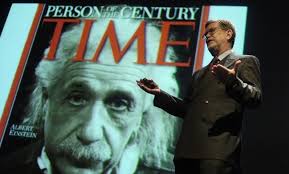
b. Nobel laureates
We are told that Ashkenazi Jews are overrepresented among the world's Nobel prize winners. We are not told if there is a particular focus. What kinds of fields do they seem to do best in? The way it is left we must assume a generalization; that is, we must assume that Ashkenazi Jews are overrepresented among Nobel prize winners in all or many fields.
If this is the case, we can only conclude that we are supposed to get the idea that the Ashkenazi are, again, just generally smarter than other people. Again, this generalization is at odds with what we had been led to believe. Intelligence has gone from being an inherited trait of the human species to one disproportionately doled out to a particular group of humanity. Does that make sense?
c. People who score above 140 on IQ tests.
The bait and switch continues. There are several problems with this one.
1. The social science behind IQ is not very good. What ever gave us the idea that we even understand what intelligence is? What ever gave us the idea that we can measure it or know how to measure it?
2. This is a general category at odds with what we were led to believe previously: the idea that intelligence is an inheritance of the entire human species, and that there is some kind of cooperative synchronization at work, that some people are good at some things that we need, and other people are good at anything else we need, and so on and so forth.
3. We are led to believe that IQ tests are gauges of innate intelligence, therefore people should not be able to, say, study for them. But people do study for them, though this fact may not be very well known (2).
4. Why are we so interested in measuring intelligence anyway?
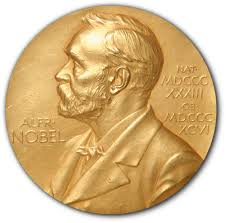
The Nobel Prize Revisited
I want to come back to this issue of the Nobel Prize. Now then, we are given to understand that because the Ashkenazi Jews are "overrepresented" as its winners, we should see this as a mark of their "intellectual distinction." Remember, we are given this information in a scientific article that rings the alarm bell concerning the supposed multiple directions humanity are "evolving" away from each other.
I. Let's look at the Nobel Prize. Let's exclude literature and the arts. At the end of the day, art is subjective.
II. Let's say that most or very many of the Nobel prizes won by an "overrepresentation" of Ashkenazi Jews are in the sciences, technology, medicine, stuff like that. Okay? We're talking about "intellectual distinction" here.
III. When a scientist, say, wins the Nobel Prize, what is involved?
a. That is to say, is it all due to the sole efforts of one or two collaborating scientists to the exclusion of anyone else?
b. Isn't it true that there are always an army of research assistants, technicians, and other support or auxiliary personnel involved---people who are not publicly named?
The answer to the first question, as we all know, is no.
The answer to the second question, again, as we all know, is yes.
IV. Beyond that, we tend to vastly underestimate the role of the state sector in not only funding research, but also in doing the actual ground work that paves the way or facilitates the eventual discovery seemingly made entirely under the auspices of the "private" sector.
To take one small example.
A political-economist called Kevin Phillips informs us that in the United States, by 1965, the federal government accounted for almost two-thirds of all spending on biomedical research; and that even in the mid-1990s, Washington maintained a contribution of 40 percent (3).
But not only that, as Phillips wrote: "When the mapping of the human genome was announced in 2000, much of the credit went to the federally-sponsored Human Genome Project, the biotech equivalent of the half century earlier Manhattan Project to split the atom" (4).
What I'm saying is that the scientists who mapped the genome deserve all the credit in the world, but their work does seem to have piggybacked off of the groundwork done by government employees.
V. In addition to all of that, there seems to some connection with the nature of patent law in all of this.
Let me quote something to you from another political-economist called David C. Korten.
"By patenting the processes by which genes are inserted into a species of seeds, a few companies have effectively obtained monopoly rights over genetic research on an entire species and on any useful products of that research. These companies have been pressing hard to turn such patents into worldwide monopolies under the GATT-WTO" (5).
Let's consider the implication of this small example. What we are being told, here, is that patent law allows corporations to alter the genetic structure of a seed in some way, which effectively "puts their name" on the thing; and now, they can call "dibs," if you will, on anything that comes from the pursuit of that research trajectory. Do you follow me?
In other words, it is as if x corporation has been able to construct of a kind of protected corridor. This seems to give us a situation wherein if anybody is going to make x trailblazing discovery or innovation in y field, it is darn well going to be "Bob" at "Quark Labs Ltd.," because everybody else at every other private research installation is legally prohibited from following z research trajectory and putting their name on the results. Are you still with me?
In fact, this kind of thing happens to be entirely general and routine in the United States, so much so that many people think that our "broken" patent law is stifling innovation in Silicon Valley, as it pertains to software, for instance (6).
But, again, one effect of the way patent law functions in the United States (and perhaps all over the advanced capitalist world), seems to be the provision of what I have called protected corridors within which scientists and other folks can come up with truly trailblazing discoveries and all that in an environment in which nobody else is doing it because nobody else is legally allowed to follow this or that research trajectory.
If not for these protected corridors, who knows who would have made this or that discovery when? Certain innovations might have been made available far earlier than has usually been the case, in an environment of a truly "free market." But who knows?
Here's the thing: When someone holds up the Nobel Prize, for pictures, for his contributions to astrophysics, our reaction is something like this: Gosh, that guy's really, really, really smart---maybe even a genius!
Again, I don't want to take anything away from this individual. But, as I have suggested, this researcher, for all we know, may have been working within a legally protected corridor, so that he and he alone was the one who was going to be the guy that made that discovery come hell or high water.
This aspect of how our economy works tend to be hidden, for reasons which we don't need to go into here. But we cannot necessarily make any assumptions about his "intellectual distinction" because we do not know whether or not he would have been the first one to hit upon the discovery of the innovation in question, under conditions of a true "free market." Are you with me?
Lastly, I must say that this is one reason why so-called IQ, as a measure of intelligence, is bad social science. And so you have the "fruit of the poison tree," with regard to any supposed ability to make inferences about evolutionary destiny concerning "intellectual distinction."
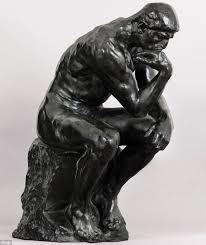
Page Four online
Sixteenth paragraph
"'Whatever we find,' Wang says, 'it would never be justification for abandoning the egalitatrian value that all individuals, regardless of their ethnicity, are deserving of the same rights and opportunities.' Moyzis expands on that line of reasoning, putting a sunny spin on the group's findings. 'It would be boring if all the races were fundamentally the same,' he argues. 'Its exciting to think that they bring different strengths to the table. That is part of what makes melting-pot cultures like our own so invigorating and creative.'"
Well, I guess we've found what the emergency was about. It seems that the notion that humanity may be "evolving" in separate directions all over the place may---if widely disseminated and accepted---create social pressure for "abandoning the egalitarian value that all individuals, regardless of their ethnicity, are deserving of the same rights and opportunities."
The fact that Moyzis laments the idea that humanity might just be "fundamentally the same" as "boring," and that he finds it great that "they"---meaning other "races"---bring "different strengths to the table"---is morally problematic, but I'll let it go in the interest of saving time.
Finally, after all of that, we get this...
Seventeenth paragraph and last paragraph of the article:
"Of course, in melting-pot cultures all kinds of ethnic groups intermingle freely, and the children who result literally meld our DNA together. Even if those groups were diverging, international travel is now causing the diversity to get lost in the genetic reshuffling. 'That's ultimate irony,' Moyzis says. 'By the time we finally settle this debate, we'll all be such a mixture of genes that we won't care.'"
So....... then........ why was the article even written?
Conclusion
I hope you read the article in its entirety for yourself. I found its evidence of species "diversion" unconvincing. Its seems to me that the writer of the article was using the concepts of evolution and adaptation interchangeably. With other species of life on this planet, that usage, I think, is appropriate.
If a fruit fly gets a mutation and that allows him some kind of advantage, we can probably expect more of that kind to eventually show up; and I suppose we can expect this particular strain of fruit fly with this special mutation to spinoff from the original strain of fruit fly out of which it emerged. And I suppose, after a while, you now have two species of fruit fly.
But that is not how it works with human beings. Never in recorded human history have we allowed people with special characteristics to spinoff---if I may use a term from the television industry---into something apart from, well... the rest of us.
The third paragraph of the first page talks about the various mutations that have showed up in the species over the past ten thousand years---2,000 in all. The mutations concern immunity to pathogens, the digestive system, the brain, life span, and other things.
Well, we talked a little bit about the brain, so called "intellectual distinction," especially as it regards winning the Nobel Prize or being good at chess.
If there are people with a particular immunity to something, I guarantee there are scientists studying them for the purpose of creating a serum or something that the rest of us can be treated with or immunized with. We are not going to let these people separate or "evolve" or "diverge" from us; their unique adaptations, whatever they may be, will be put to the benefit of all of us, and then, in time, their immunity will become our immunity.
And so on and so forth. In short, I'm just saying that the human species does not do "spinoffs," the way The Simpsons were a spinoff of the Tracey Ullman Show.
Thank you so much for reading.
References and Notes
1. Retrieved 01/09/2015 http://discovermagazine.com/2009/mar/09-they-dont-make-homo-sapiens-like-they-used-to
2. I am referring to an article for New York magazine, written by Jennifer Senior called "The Junior Meritocracy: The Myth of the Gifted Child," originally published on January 31, 2010. It talks about how upper middle class parents in New York City and other places in the United States, provide intensive tutoring preparation for the four-year-olds to do well on required intelligence tests, so that they can win a place in an elite public or private preschool. Retrieved 01/09/2015 http://nymag.com/news/features/63427/
3. Phillips, Kevin. Wealth and Democracy: A Political History of the American Rich. Broadway Books, 2002. 248.
4. ibid
5. Korten, David C. When Corporation Rule the World. Berrett-Koehler & Kumarian Press, 1995. 180;
and also, 125. Again, David C. Korten wrote that The Economist magazine "suggested that the appropriate strategy for those who own the rights to products or processes in a fully globalized economy is not to produce anything. Instead, they should simply license rights to the products and processes for an amount sufficient to yield the same profits they would have made if they had produced the products locally or for export."
Let's just note, here, that given subsequent events, many, if not most, big corporations certainly took that advice to heart. We can also note that this means that entities can use patent law to extend what I have termed the protected corridor of research and development to anyone else they wish, for a fee, of course.
6. I would draw your attention to the best show on radio today: This American Life hosted by Ira Glass. The specific episode is called "When Patents Attack," which kind of says it all, doesn't it? Retrieved 01/09/2015 http://www.thisamericanlife.org/radio-archives/episode/441/when-patents-attack


